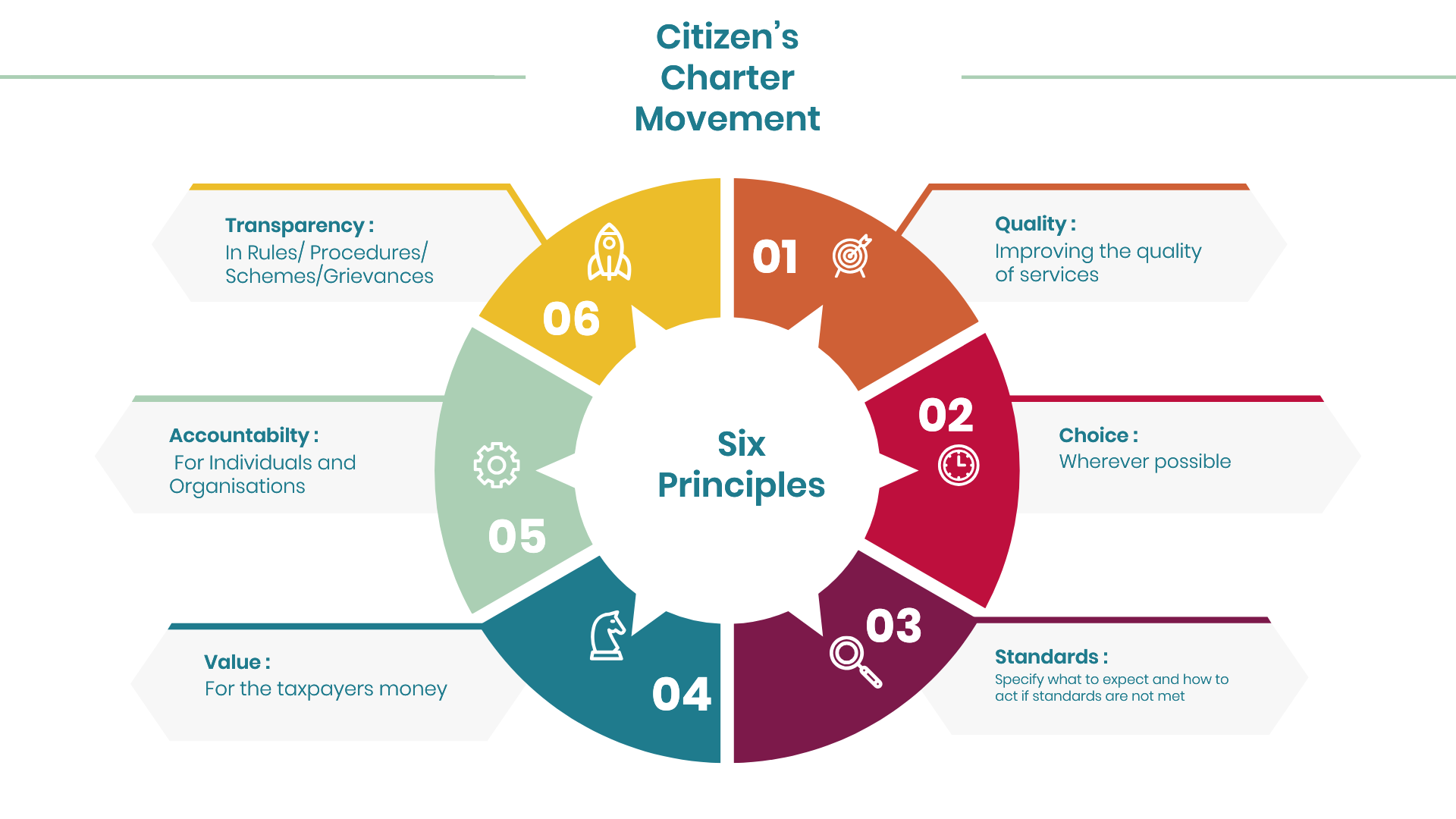-
08 Jul 2025
GS Paper 2
Polity & Governance
Day 20: “Good governance is not just about rule-based administration but also about rights-based service delivery.” Discuss in light of the objectives and limitations of Citizens’ Charters in India. (150 words)
Approach
- Define good governance and highlight its core attributes.
- Discuss the objectives and limitations of Citizens’ Charters in India in the given context.
- Conclude with a suitable way forward.
Introduction:
Good governance is a governance model that emphasizes transparency, accountability, responsiveness, and citizen participation. It not only requires adherence to administrative rules but also guarantees the rights of citizens to receive timely and quality public services. In this context, Citizens’ Charters, introduced in India in 1997 as part of the administrative reforms, aim to institutionalize rights-based service delivery mechanisms.
Body:
Objectives of Citizens’ Charters
- Service Standards: Specifies timelines and quality benchmarks for service delivery.
- Roles and Responsibilities: Makes officials accountable for their duties.
- Grievance Redressal: Provides mechanisms for citizens to report delays or denial of service.
- Transparency and Participation: Informs citizens of their entitlements and channels for redress.
- By defining service delivery standards, Citizens’ Charters promote a rights-based approach, enabling citizens to demand services as a matter of entitlement rather than administrative discretion.
- Successful examples include the Bangalore Municipal Services Charter and Karnataka Sakala Services Act, which provide time-bound delivery of services backed by penalties for delays.
Limitations and Challenges
- Lack of Legal Backing: Most charters are non-binding, limiting enforceability.
- Low Public Awareness: Citizens often do not know about their service rights.
- Weak Grievance Redressal: Absence of independent monitoring or feedback loops.
- No Performance Linkage: Non-compliance has little consequence for officials.
- No adequate Consultation:Charters are often drafted mechanically without adequate consultation with stakeholders or frontline staff.
Conclusion:
The 12th Report of the Second Administrative Reforms Commission (ARC) recommends making Citizens’ Charters effective by ensuring clear remedies for non-compliance, measurable service standards, process reforms, and robust grievance redressal, with wider consultations and agency-specific customization.





